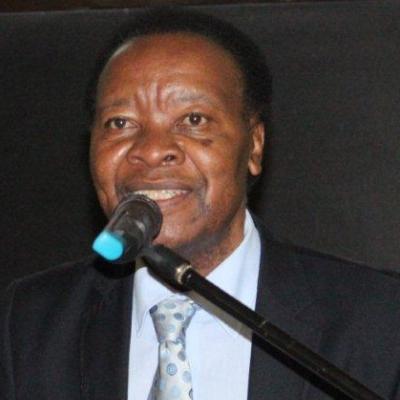
Over the years, critics have slammed entertainers for using their celebrity status to promote political views, calling on them to “stay in their lane” or “just shut up and sing.” Such criticisms were aimed most recently at musicians who sang political songs. Thomas Mapfumo, who was recently in the country after being forced into exile, is an example of such criticism from the Zimbabwean authorities.
By Fred Zindi
I remember years ago when Last Chiyangwa, aka Tambaoga, came up with the song The Only Blair I know Is A Toilet, former minister Saviour Kasukuwere, who was so impressed by the song at the time when former president Robert Mugabe was engaged in political fights with the British prime minister, Tony Blair, jumped on the stage at the Harare International Conference Centre and showered Tambaoga with $200.
Tambaoga became the darling of many Zanu PF supporters who attended the show. After that, there was no Zanu PF gathering that Tambaoga would not perform at and he also became a regular feature on national radio and television.
However, there were others who felt offended by the song and were asking each other why Tambaoga had come up with such a political tune. I overheard one punter saying: “ Why the hell is that young man jeopardising his future by singing politics? Some of us love music without the politics thrown in it.”
A few years later, Tambaoga found himself falling into the abyss because of his widely-perceived political alignment to Zanu PF. He even tried to resuscitate his career in 2009 when he released an album titled Hakata, but music fans gave this album a cold shoulder.
It became obvious that his demise in music was brought about by his involvement in Zanu PF politics.
It is, however, difficult to separate music from politics.
- Chamisa under fire over US$120K donation
- Mavhunga puts DeMbare into Chibuku quarterfinals
- Pension funds bet on Cabora Bassa oilfields
- Councils defy govt fire tender directive
Keep Reading
In 2016 Jah Prayzah launched the album Mudhara Vachauya and the following year Kutonga Kwaro. Most Zimbabweans interpreted these albums as politically-motivated.
Musicians and politicians have a lot in common — or so it seems. Both have to engage the public and often try to push for a cause or to deliver a message.
The late Hugh Masekela, who found mainstream success with his musical instrument — the trumpet — also assumed political significance when he became an outspoken and vehement opponent of apartheid and oppression. He worked closely with other political activists who included Harry Belafonte, Bob Marley, Miriam Makeba (to whom he was married for several years) and Nigerian impresario Fela Kuti.
Kuti, who is now recognised as a national hero by the Nigerian government, was, because of the unyielding political messages in his music, repeatedly jailed and tortured by a string of military regimes in Nigeria from the 1970s until his Aids-related death in 1997.
Kuti’s big band, Afrobeat, was a compelling setting for the incendiary lyrics. In his song ITT, for example, he took aim at the telecommunications giant, which he called International Thief Thief.
Britain’s Margaret Thatcher, former South African prime minister PW Botha and Nigerian generals Muhammadu Buhari and Tunde Idiagbun, who were behind Fela’s 1984 incarceration, were all targets of his lyrics in Beasts of No Nation (BONN).
But some of Nigeria’s current leaders have begun to embrace the country’s best-known musical star. Felabration was started in 1998 by his daughter Yeni Kuti. It is now co-sponsored by the Nigerian government. In 2012, the government also turned Kalakuta Republic, which was Fela’s communal compound, into a museum.The vindication of Fela is all the sweeter because his original compound was destroyed by the military in 1977.
Fela’s music spoke to the disadvantaged. He held radical pan-African views — he even started his own political party, Movement of the People.
Fela gradually developed Afrobeat over the next decade, a musical journey that paralleled his growing political awareness. But his efforts were as threatening to the independent Nigerian government as they would have been under British rule. The more popular Fela’s music grew, the more he became a target for a series of military regimes. He became notorious for his outrageous lifestyle — heavy marijuana consumption, a harem of women and a habit of giving interviews dressed only in bikini briefs. Like our own Mapfumo whose music became as threatening to the independent Zimbabwe government as it did during Rhodesia under British rule, Fela became a pain to the Nigerian government.
But today the government of Lagos state views Fela as a national hero.
I was speaking to Banning Eyre, American guitarist and author of Lion Songs who came here with Mukanya’s entourage, and he suggested that the Zimbabwean government ought to give Mapfumo the same national hero status that Fela got.
South African group Freshlyground, who are the closing act for the Harare International Festival of the Arts (Hifa) tonight, were controversially banned from entering the country in 2014 because of their political stance after they had recorded the video of a song titled Chicken To Change. The video showed a spitting image-style portraying former president Robert Mugabe as a chicken afraid to relinquish power.
The video also showed Mugabe, in a puff of feathers, transforming into a poultry version of his former self in the back of his presidential limousine.
With the new dispensation, without Mugabe as president of Zimbabwe, Freshlyground are in the country and will perform tonight.
Music, by its nature, is inherently political. Musicians have been singing about the ills of society since the origins of music and some of the best musicians of all time are recognised for their populist songs that many people can relate to. Musicians have the ability to connect with issues that are of great importance to regular people. The best political musicians are among the most beloved figures in history because they are not afraid to stand up to injustice and rankle governments or corrupt organisations.
Last week, when Mapfumo performed before the largest crowd ever seen by a local artiste, it was his political statements and songs, which drew the crowd to his high-powered performance. During the show, he did not utter a single political word except calling out “Zimbabwe!” and “Yahwee!”, but he let the music speak for itself.
Nyoka Musango (Traitor), Pasi Paenda, Chikonzero, Chiruzevha Chapera, Pidigori Waenda, Nhamo Zvakare and his latest, Chauya Chauya are some of the songs that did it.
During the armed struggle the songs that inspired the masses included Pfumvu Paruzevha, Gwindingwi Rine Shumba, Zimbabwe YeVatema, Pamuromo Chete and Hokoyo. After independence Mapfumo continued to be critical of the politicians as he sang Corruption In The Society.
A week before last week’s performance, Mapfumo had been speaking out against the Emmerson Mnangagwa-led government’s policies and also spent time conscientising the people about their rights. He also advised Zimbabweans on how to make the right decisions when it comes to voting. On performance day, he said that he would not give speeches, but would let his songs do the talking.
Mapfumo could easily be described as the top political artiste Zimbabwe has ever produced.
There are others of course. Any list of political artistes has to include the likes of Hosiah Chipanga, Leonard Zhakata, Comrade Chinx and Andy Brown. These musicians are widely recognised as some of the most important political musicians of Zimbabwe. Their contributions to bettering society and helping the voiceless is what makes political musicians a vital part of music culture.
A few years ago, Gweru-based musician Man Soul Jah came up with Lacksley Castel’s composition titled Give Us Jah L and Mr Government Man in which he proclaimed “We live like squatters in the land of our heritage. That is wrong!”
In 2007 during Zanu PF campaigns, Bryn Taurai Muteki did a collaboration song with the late Zanu PF national political commissar Elliot Manyika titled Nora (Mhururu Kuenda Nekudzoka Mhururu), which went viral and became Zanu PF’s morale-booster before the 2008 elections.
When we ask musicians to keep their work free from politics, not only do we reduce their identities to their profession, but we also reveal a gross lack of awareness about how politics and art have been intertwined throughout history.
Entertainers are citizens with ideas about which policies would make this country “great.” That includes political ideas. Feedback: [email protected]











